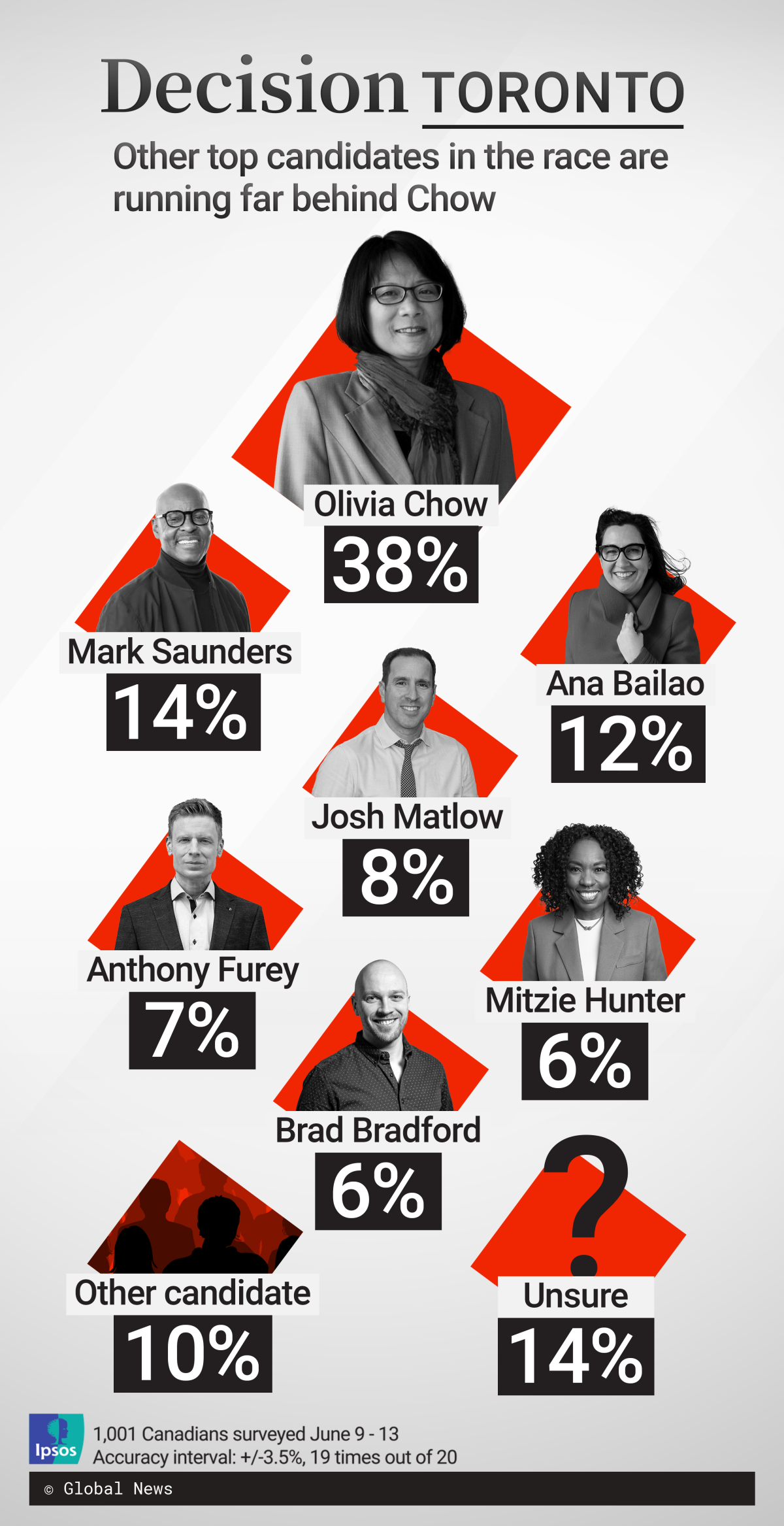As the polling day in the race to be Toronto’s next mayor draws closer with Olivia Chow firmly in the lead, the number of people who actually turn out to vote and the strength of their loyalty could still have a significant effect.

Polling conducted exclusively for Global News and the Toronto Star by Ipsos shows Chow with a firm grip on the race, though one pollster and the data caution voters are more loyal to some candidates than others.
“Support behind Olivia Chow, plus a couple of councillors on the list of candidates, tends to be higher than it is for the average,” Global CEO of Ipsos Public Affairs Darrell Bricker told Global News.
The poll, conducted between June 9 and June 13, found Olivia Chow out in front of the pack with 38 per cent support, followed by Mark Saunders with 14 per cent and Ana Bailão with 12.
Saunders’ support in second, however, could be shaky, the polling suggests.

Get daily National news
Just 51 per cent of those who said they would vote for Saunders said they were “absolutely certain,” while 42 per cent said “very likely.”
The rate of voters certain to vote for Saunders is the second weakest among the top polling seven candidates. Only Brad Bradford (45 per cent absolutely certain) polled lower.
“We’re finding Saunders’ support is particularly weak,” Bricker said. “Ana Bailão only trails Mark Saunders by two points in this poll, so turnout could have an effect on that — maybe she does come in second.”
Voter loyalty appears to be highest among Bailão and Josh Matlow (both 73 per cent absolutely certain). Chow holds the next highest rate at 66 per cent.
Turnout at advance polls was higher in Toronto than during October’s municipal election.
Almost 130,000 people cast early votes for mayor between June 8 and June 13, a 12 per cent increase compared to the election in October. That does not necessarily mean Toronto will see a spike in turnout on Monday, Bricker said, suggesting that candidates are ” just better organized at getting the vote out earlier.”
Voter turnout in the October election was around 550,000, unofficial figures at the time said. Turnout results from the Association of Municipalities of Ontario calculated around 39 per cent of eligible voters cast a ballot.
“You could see a surprise on election day, where Olivia Chow does a little bit better or a little bit worse,” Bricker said, suggesting that both Matlow and Bailão could do a little better than the polling suggests.
The race, however, ultimately appears to be for second place.
“Unless something catastrophic, and I mean really catastrophic, happens this week (for the Chow campaign), the next mayor of the City of Toronto will be Olivia Chow,” Bricker said.
The methodology for the poll is available in this previous article.




Comments
Want to discuss? Please read our Commenting Policy first.